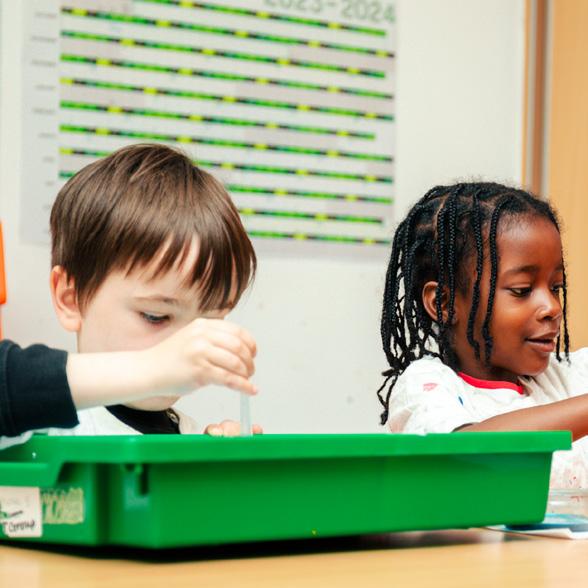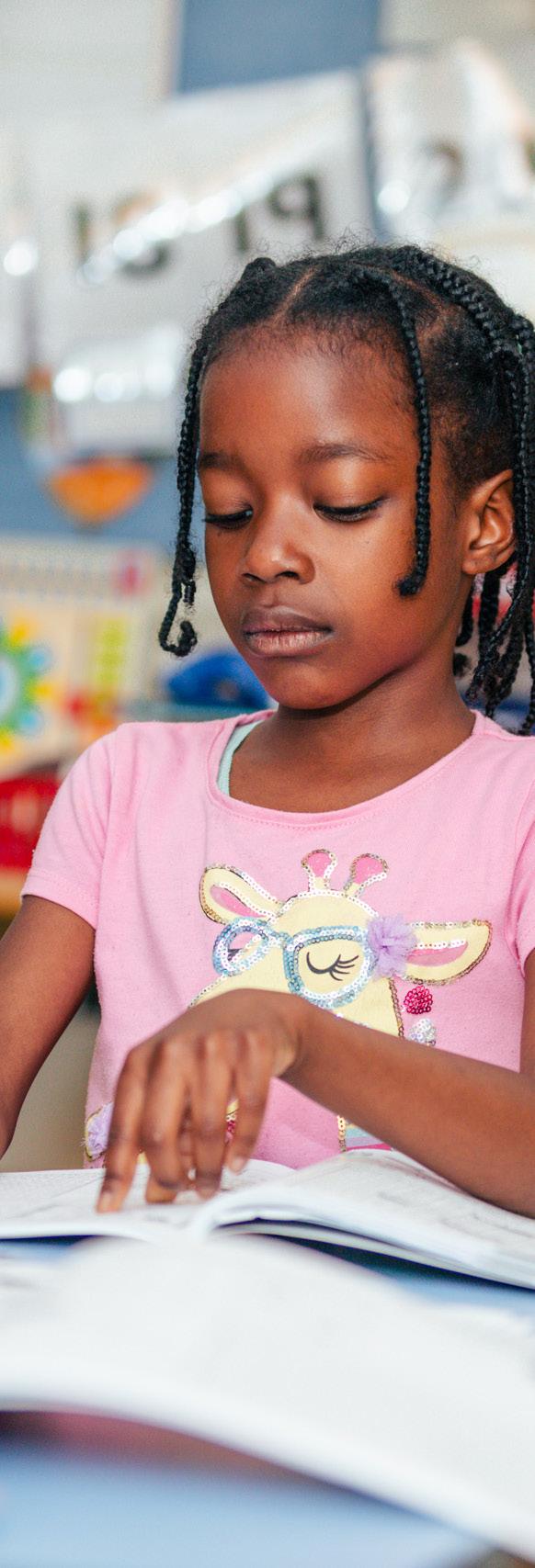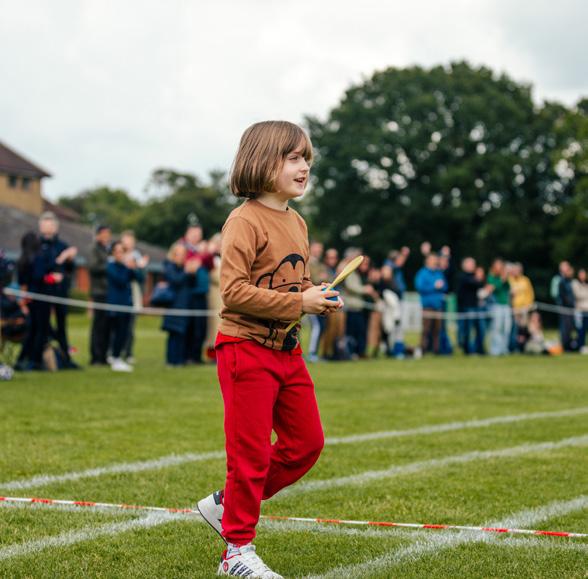




The Junior School follows a one-week timetable with a topic-based curriculum. Subject specific learning will, in the main, be approached through the lens of the topic.
Below you will find a summary of the main subjects covered in J Group (Year 1) and the amount of time dedicated to them each week. The class teacher is the main lead for the subject except for those subjects which are led by specialist teachers, detailed below.
Autumn term (First Half): It’s All About Me! Our first topic gently introduces students to Key Stage 1 by focusing on something they know best – themselves. Through exploring personal timelines and their journeys to school, students begin to make sense of the wider world from their own perspective.
Autumn term (Second Half): Seasonal Celebrations This half term, students discover the joy of festivals and seasonal change. They learn about a range of celebrations including Hanukkah and Christmas, alongside observing the natural changes happening around them.
Spring Term: Toys Past & Present (History/DT) Students take a journey through time by exploring toys from the past and present. They share their favourite toy, look at toys from their family history, and consider how materials and designs have changed. As part of their learning, they also reflect on sustainability and how toys can be made more environmentally friendly.
Summer Term 1: Leaving on a Jet Plane In this geography-based topic, students become explorers, travelling to a different country each week. Along the way, they learn about geography, culture, and art from around the world.
Summer Term 2: Under the Sea
To finish the year, students dive into an exciting ocean adventure. They explore life under the sea, discovering the incredible creatures and habitats that lie beneath the waves.

Kelly Wailes
5 hours 30 minutes
overNumberofhours 1week
English covers a different range of fiction, non-fiction, and poetry texts each half term. Phonics is taught daily as an essential building block to reading and writing. Letter formation is taught and practiced regularly using multisensory techniques. Capital letters, question marks, exclamation marks, and full stops are taught as a first step in understanding punctuation. We aim for children to read daily in class, either as part of a guided reading group, lesson, or 1:1 with an adult.

Kelly Wailes
4 hours
Using the Power Maths scheme, J Group students cover a range of mathematical concepts through number work and problem solving. Students work on consolidating numbers to 10 in September, and up to 100 by the end of the year. This includes recognising, ordering, adding, and subtracting. Problem-solving includes shape, space, and measures and challenge work is often multi-step, encouraging critical thinking. Daily maths fluency lessons with further support progress and development.

Kelly Wailes
1 hour
In J Group students are encouraged to work scientifically with the topics which include; plants, animals, materials and seasonal changes. They will question, observe, test, identify, classify and gather data to analyse and address the questions raised. Through practical experiments and observations, children develop an understanding of the world around them. Critical thinking and enquiry skills are encouraged as students engage with hands-on scientific principles, fostering a curiositydriven approach.


Kelly Wailes
1 hour
During computing, children in J Group work on core skills, such as using the school computer system and understanding how to use technology. Students also complete projects covered in our scheme of work, Switched on Computing. These projects include using programmable toys, video production, digital art, multimedia publishing, creating sound patterns, using data, and coding.
Kelly Wailes
1 hour
In J Group, we combine history and geography within our overall humanities topic. In history, we use timelines and sources to explore when and why things happened in the past and learn about a range of significant historical figures and events. In geography, students continue to develop a wider geographical and locational understanding, studying human and physical geography, buildings on maps, and fieldwork from the early years.
Kelly Wailes
2 hours
In J Group, art and design and technology work is linked to the overall topic. Students are encouraged to use their imagination and creativity to design and make products using a range of materials. They experiment with colour, pattern, texture, line, shape, form, and space to create artwork. The class also explores the work of different artists, craft makers and designers. By studying their work, students learn about the differences and similarities between various practices and disciplines.



Kelly Wailes
30 minutes
In PSHE (Personal, Social, and Health Education), we address personal well-being, interpersonal relationships, and the importance of physical and mental health. J Group students focus on units which include: Mental Wellbeing, Money and Work, as well as Developing a Growth Mindset.
Kelly Wailes
30 minutes
RSHE (Relationships, Sex and Health Education) is an opportunity for students to engage in open conversations and activities. Through RSHE, students develop the skills to make informed decisions, build healthy relationships, and understand the importance of self-care. J Group focus on units including: Friendships, Similarities and Differences, Special People, Different Families, Body Parts, and Changes Since Birth.
Edel Davies
30 minutes
Through games, songs, mime, dance and play, children learn key French vocabulary, linguistic structures and grammar. Classroom routines help students to consistently revisit and build upon previously learned language. Through a variety of engaging situational topics, students are exposed to grammatical concepts such as indefinite articles to express noun, gender, quantity, adjectival placement, adverbs, and relative clauses. The focus for J Group children is on understanding aural input and oral output.




Martin Goodchild
2 x 30 minutes
In J Group, students explore long and short sounds and high and low sounds. Students also consider: what different instruments sound like and how they can be played in different ways to produce different colours; dynamics and tempo (loud or soft and fast or slow); and thinking about how we combine different sounds and instruments and the effect these combinations have.
Mark Day
2 x 30 minutes
Students in J Group focus on fundamental skill development throughout their PE lessons through fitness, yoga, creative dance, gymnastics, and mini athletics. Students experience simple modified running, jumping, and throwing activities. Throughout the sessions, they familiarise themselves with simple body movements and actions using different parts of their bodies and will express feelings, moods, and ideas in response to different types of music. Students will also explore, replicate, and improve the quality of their actions, body shapes, and balances on the floor and using apparatus.
Jenny White
30 minutes + changing time
In their swimming lessons, J Group students improve their ability to In their swimming lessons, students continue to improve their ability to travel unaided through the water. Activities in each session are designed to develop the basic techniques for front and back travel (without aids) across a distance of 5m. Specialist swimming teachers work with students to build their confidence in deeper water and help them to jump in unaided. Students partake in an additional 10-minute “Aquafun” session at the end of each lesson. These sessions use a variety of equipment to complete structured games or activities, which enhances their aquatic skills.
Lydia Somerville
1 hour 30 minutes
Students in J Group begin to consider the context of their surrounding environment and the great outdoors! The class begin to take a closer look at the environment and take on new challenges while remaining safe. Students undertake matching activities and treasure hunts, learn how to keep safe around sticks and branches, and practice tying a shoe lace knot. Throughout their Forest School lessons, J Group children are encouraged to think introspectively, considering “How do I feel outdoors?”. Students also build upon their understanding of fire awareness.
Forest School at St Chris is a child-centred, inspirational process that gives our young learners opportunities to challenge themselves, develop confidence and increase their self-esteem through hands on learning experiences in a natural environment. Sessions are based on a fundamental respect for students and for their capacity to instigate, explore and maintain curiosity in the world around them. Most importantly, our students develop a deep and meaningful connection to the natural world and understand their place in it.

St Chris is a progressive school with a sense of equality between staff and children, connection to nature through forest school and animals, small class sizes and individualised approach, lack of uniforms and the importance of prioritising arts as well as academics.
Parents' Survey